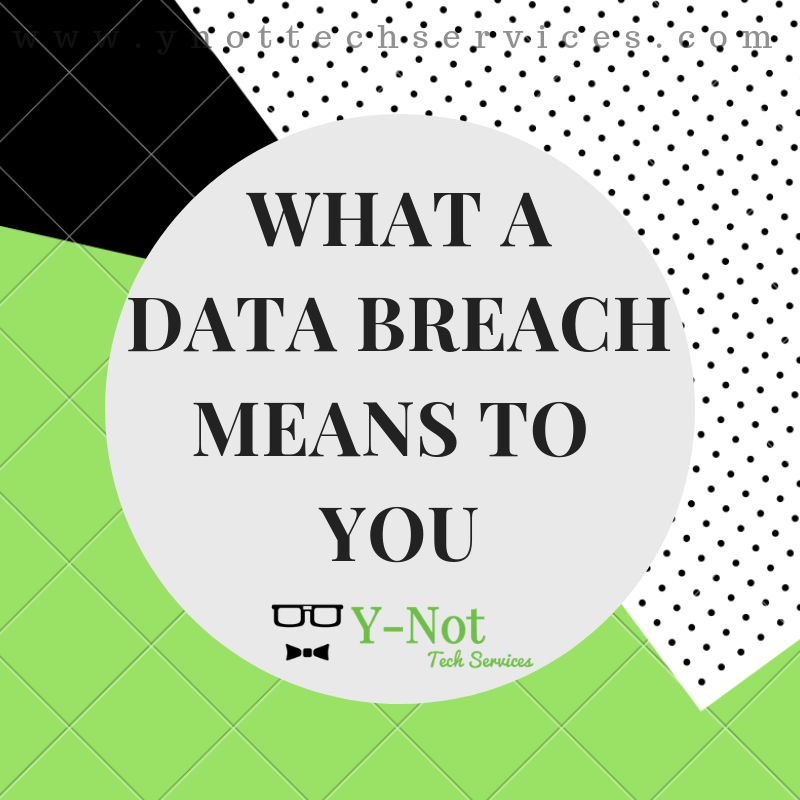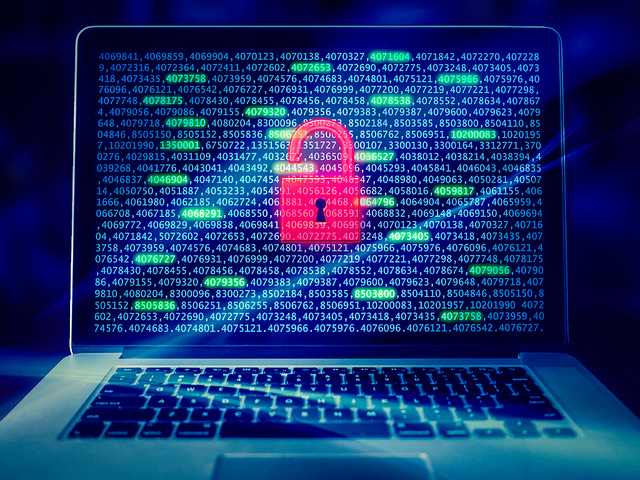 Data Breaches are becoming more and more commonplace. Each day we trust our personal information with businesses and corporations with the expectation that they will guard and protect it, but that doesn’t always happen. Y-Not Tech Services wants to help you if your data has been compromised.
Data Breaches are becoming more and more commonplace. Each day we trust our personal information with businesses and corporations with the expectation that they will guard and protect it, but that doesn’t always happen. Y-Not Tech Services wants to help you if your data has been compromised.
The Marriot Breach
On November 30, 2018, Marriot International announced that the personal information of up 500 000 000 of its guests may have been compromised in a data breach. What kind of data was taken? Marriot International says the information taken includes:
- guest’s name
- mailing address
- phone number
- email address
- passport number
- Starwood Preferred Guest account information
- date of birth
- Gender
- arrival and departure information
- reservation date
- communication preferences
That’s a pretty big list of data and quite troubling on its own. What’s worse is that the company also says that some guest’s Credit Card information might have been also been accessed, including credit card numbers and expiry dates. Marriot International claims that the Payment information is encrypted, but adds that they can’t be sure the information needed to decrypt it wasn’t also stolen…
That’s a pretty bad breach right there. If you’ve stayed at a Marriot International owned property since 2014 (when this breach began) or if you want more information on this particular breach you can visit https://answers.kroll.com/, a website set up by Marriot to provide more information and offer a fraud watch service to those affected. As bad as this breach is, it doesn’t stand alone. Yahoo, eBay, Equifax, Target, Uber, Sony, VeriSign, Home Depot and Adobe have all been involved in large-scale data breaches. And that is just a small sample!
But What Does it mean for Me?
It means that your personal information is out there and you need to take steps to remedy it. I used the Marriot Breach as an example because it is big and fresh in our memories, but no matter what company has leaked your data there are things you should do to protect your future.
When personal information like this is stolen, it’s the first step in identity theft. The party that stole the data might try to use it themselves, or they might look to sell the data to the highest bidder on the Dark Web – where a new identity can be bought for as little as $15 including Passport Number, email address, passport number, date of birth. All the information they need to apply for a new credit card or a line of credit in your name.
Data Breach Damage Control
If your personal information has been taken in a breach it’s time for some damage control on your part. Here are the two most important things you need to do after a data breach steals your information.
Change Your Password
This is the absolute first thing you should do in any breach situation. Change the password on the account affected by the breach and any other account that uses the same password. On that note, using the same password for multiple accounts really isn’t a good idea. Now is a great time to start using a Password Manager like our Password Vault power by Keeper Security. If your email address was part of the information accessed it’s a good practice to go ahead and change the password for your email account as well, just to be safe. If they gain access to your e-mail they can reset the password on nearly any of your online accounts.
Watch Your Credit
After any breach, you want to watch your credit report so you know if your information is used to open credit in your name. Some experts actually recommend setting up an alert on your credit and keeping it active at all times, not just after a breach. Talking to your Credit Card company is a good place to start.
If you don’t have plans on opening up new credit accounts of any time, you might want to consider putting a freeze on your credit altogether as a proactive measure.
Business Owners Responsibility
If you own a business, you have a responsibility to your clients and customers to keep any private information you attain from them safely. This includes making sure your networks, computers, paper records and accounts are secure. If you store customer data with a third party like a payment company or CRM (like Hubspot or SalesForce) you should ensure your account is secure by choosing a strong password that is different from other accounts and consider setting up 2 Factor Authentication if available.
If you feel you need any assistance in dealing with a data breach feel free to reach out to Y-Not Tech Services and we would be happy to assist you in any way we can.



